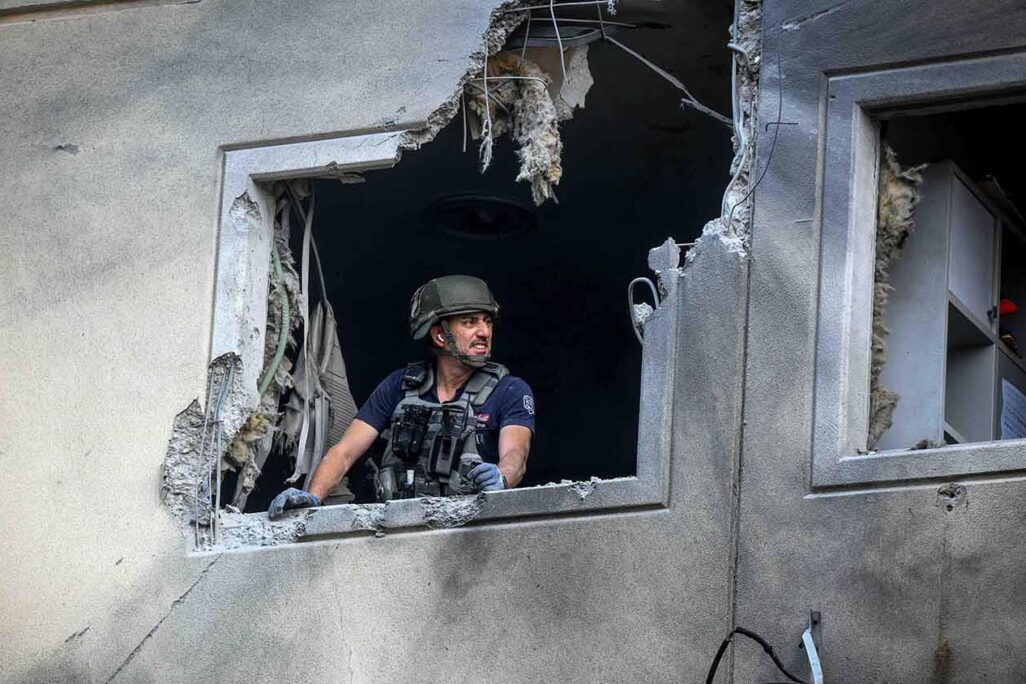
Dr. Ido Zelkovitz, head of the Middle East Studies Program at Max Stern Yezreel Valley College, and a research fellow at the Ezri Center at the University of Haifa and the Mitvim Institute, makes a grim estimation of the intensifying tensions between Israel and Hamas.
"The security escalation in the Gaza Strip will not end this time as quickly as in previous rounds because Hamas not only threatened the State of Israel but actually carried it out, and fired directly at the capital," he said.
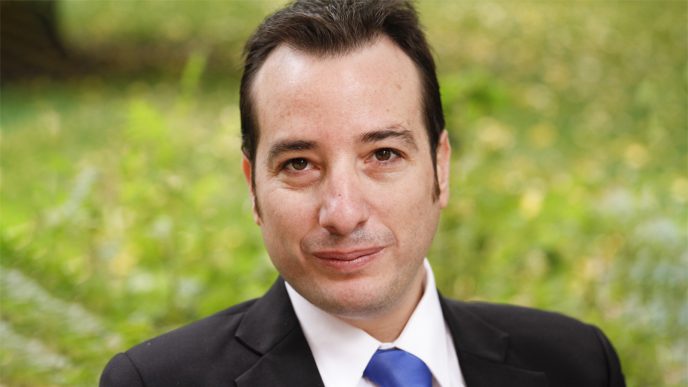
According to Zelkovitz, one way to understand the escalation against Israel is through an understanding of the internal Palestinian policy promoted by Hamas.
"Against the background of the ongoing tensions in East Jerusalem and the cancellation of the elections to the Palestinian legislature, they are sending a message to Abu Mazen [President of the Palestinian National Authority Mahmoud Abbas] that he is not the only one who determines what is happening in the Palestinian political system," said Zelkovitz.
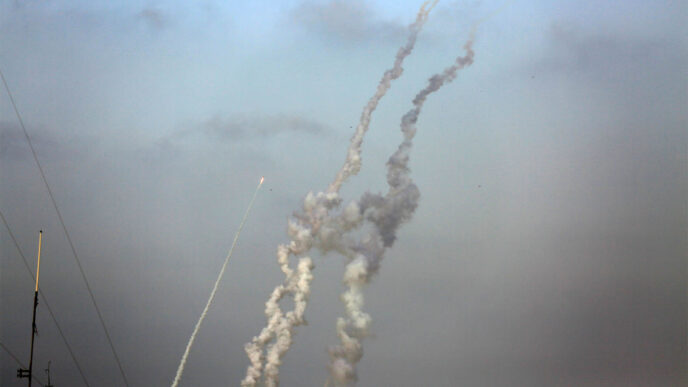
"The demonstration of power and strength against Israel is intended to promote Hamas within the Palestinian political system, and to help it portray itself as the defender of the Al-Aqsa Mosque,” he continued.
"This move puts Israel in a place where it must respond forcefully," Zelkovitz continued. "If Hamas' firing happens without a significant Israeli response, much more significant than what we have seen lately, it will strengthen the feeling on the other side that Israel has been weakened and deterred by Hamas."
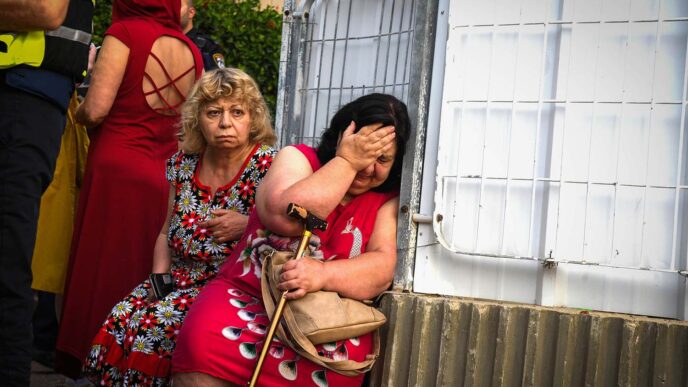
He also points to internal tensions within Hamas as a possible factor.
"The initiated escalation is also a product of the weakening in the internal elections within Hamas of Hamas Prime Minister Yahya Sinwar, who was a little more cautious, and an increase in the power of Muhammad Daf and the military arm, which has more militant lines of action,” Zelkovitz explained.
The escalation is also causing unrest among the Arab citizens of Israel.
"There is a feeling, not only among the Arabs of East Jerusalem, but also in the Negev and elsewhere, of a lack of governance on the Israeli side. This feeling is intensified by social networks and videos on Tiktok,” Zelkovitz said. "If Israel does not adopt a policy that makes it clear that it has power and is not afraid to use it, I have no doubt that the riots will spread to other places in the country."
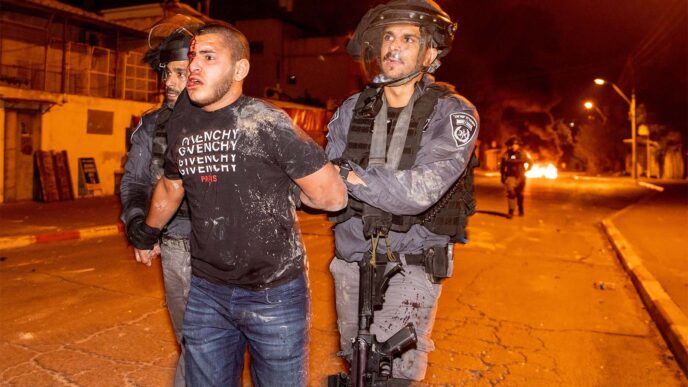
"We saw the first signs yesterday in Haifa, today in Umm al-Fahm, and in the evening in Lod and at the HaMovil junction. If Israel does not know how to put out this fire quickly, it will find itself facing a much more serious problem,” he continued.
“These pockets of chaos, which Hamas wants to see, are being created and developed. It catches the Israeli system at a very difficult time, at the turning point between a transitional government and a new government, which, among other things, depends on the votes of the Arab parties. At least at the declarative level.״
Zelkovitz goes on to describe the connection between the escalation and the current political instability in Israel.
"The political situation in Israel has led Hamas to take this gamble with the understanding that at a time when there is no clarity in decision making on the Israeli side. Decision makers in Israel will decide that 'what was is what will be,’” he said. "Hamas wants the same things it has achieved in the past through escalation – inflow of Qatari money, entry of goods, expansion of the fishing space, etc. – but I am not sure that will be the case."
"The political and ideological circumstances have changed,” Zelkovitz went on. “Until now, Netanyahu has exercised caution in using force and in previous rounds, he has curbed the desire to enter the Gaza Strip on the ground.”
Now, he explains that Netanyahu has been pulled to the right during the last round of political negotiations, specifically by Bezalel Smotrich (leader of the ultra right-wing Religious Zionist party) who was unwilling to form a coalition with Arab parties.
“Along with the changes in the Hamas leadership, this is no longer the same reality in which each side has learned to read the other side like in previous rounds. Nor have we yet seen Israel's substantial response,” Zelkovitz explained. “Hamas is the one that decided on the escalation and scheduled it, and you don’t deliver a blow to the other side when they are prepared for it.”
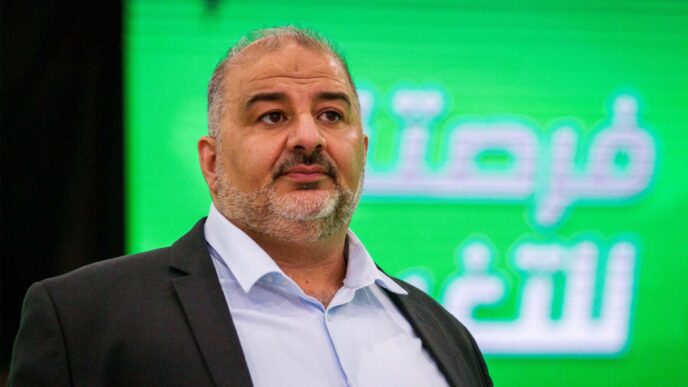
All this brings up the question of whether it will be still possible to form a government with the support of the Israeli Islamist Ra’am party, which has positioned itself as potential partners in a coalition.
"This is a very complicated political tangle. Ra’am has announced that it is suspending the negotiations until things blow over,” said Zelkovitz. "Before that, the Islamic Movement in the southern region issued a moderate statement in which it called on the government to withdraw its forces in a way that leaves an opening for dialogue and sees the other side in a respectful manner."
“In the announcement, Ra’am referred to the Israeli government in Arabic as ‘government’ and not ‘occupation forces’ as Arab politicians sometimes do when talking about Jerusalem or the territories. This is a fundamental change in discourse. The game is not as black and white as it is always convenient to draw. The southern faction of the Islamic movement usually uses moves that produce some sort of maneuvering space."
"On the one hand it seeks the way that will allow it as a movement, not as individuals, to maintain dialogue and take part in shaping Israeli government policies and on the other hand to express sympathy with what is happening on the Palestinian side all the more so as the struggle and violence escalates."
"An example of this is that while the Islamic Movement issued a moderate message, there were MKs who spoke a much more aggressive language. [Ra’am] MK Saeed Alkharumi spoke about the occupation and crimes that Israel is committing in al-Aqsa. There is the voice of the individuals and there is the voice that the movement makes as a movement.”






